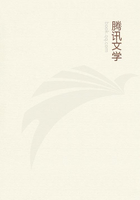
第24章 BOOK I(15)
Pliny and Solinus relate that a certain king,who was very fond of dogs,and addicted to hunting,was taken and imprisoned by his enemies,and in a most wonderful manner liberated,without any assistance from his friends,by a pack of dogs,who had spontaneously sequestered themselves in the mountainous and woody regions,and from thence committed many atrocious acts of depredation on the neighbouring herds and flocks.I shall take this opportunity of mentioning what from experience and ocular testimony I have observed respecting the nature of dogs.A dog is in general sagacious,but particularly with respect to his master;for when he has for some time lost him in a crowd,he depends more upon his nose than upon his eyes;and,in endeavouring to find him,he first looks about,and then applies his nose,for greater certainty,to his clothes,as if nature had placed all the powers of infallibility in that feature.The tongue of a dog possesses a medicinal quality;the wolf's,on the contrary,a poisonous:the dog heals his wounds by licking them,the wolf,by a similar practice,infects them;and the dog,if he has received a wound in his neck or head,or any part of his body where he cannot apply his tongue,ingeniously makes use of his hinder foot as a conveyance of the healing qualities to the parts affected.
CHAPTER VIII
Passage of the rivers Avon and Neth -and of Abertawe and Goer Continuing our journey,{89}not far from Margan,where the alternate vicissitudes of a sandy shore and the tide commence,we forded over the river Avon,having been considerably delayed by the ebbing of the sea;and under the guidance of Morgan,eldest son of Caradoc,proceeded along the sea-shore towards the river Neth,which,on account of its quicksands,is the most dangerous and inaccessible river in South Wales.A pack-horse belonging to the author,which had proceeded by the lower way near the sea,although in the midst of many others,was the only one which sunk down into the abyss,but he was at last,with great difficulty,extricated,and not without some damage done to the baggage and books.Yet,although we had Morgan,the prince of that country,as our conductor,we did not reach the river without great peril,and some severe falls;for the alarm occasioned by this unusual kind of road,made us hasten our steps over the quicksands,in opposition to the advice of our guide,and fear quickened our pace;whereas,through these difficult passages,as we there learned,the mode of proceeding should be with moderate speed.But as the fords of that river experience a change by every monthly tide,and cannot be found after violent rains and floods,we did not attempt the ford,but passed the river in a boat,leaving the monastery of Neth {90}on our right hand,approaching again to the district of St.David's,and leaving the diocese of Landaf (which we had entered at Abergevenny)behind us.
It happened in our days that David II.bishop of St.David's,passing this way,and finding the ford agitated by a recent storm,a chaplain of those parts,named Rotherch Falcus,being conversant in the proper method of crossing these rivers,undertook,at the desire of the bishop,the dangerous task of trying the ford.Having mounted a large and powerful horse,which had been selected from the whole train for this purpose,he immediately crossed the ford,and fled with great rapidity to the neighbouring woods,nor could he be induced to return until the suspension which he had lately incurred was removed,and a full promise of security and indemnity obtained;the horse was then restored to one party,and his service to the other.
Entering the province called Goer,{91}we spent the night at the castle of Sweynsei,{92}which in Welsh is called Abertawe,or the fall of the river Tawe into the sea.The next morning,the people being assembled after mass,and many having been induced to take the cross,an aged man of that district,named Cador,thus addressed the archbishop:"My lord,if I now enjoyed my former strength,and the vigour of youth,no alms should ransom me,no desire of inactivity restrain me,from engaging in the laudable undertaking you preach;but since my weak age and the injuries of time deprive me of this desirable benefit (for approaching years bring with them many comforts,which those that are passed take away),if I cannot,owing to the infirmity of my body,attain a full merit,yet suffer me,by giving a tenth of all I possess,to attain a half."Then falling down at the feet of the archbishop,he deposited in his hands,for the service of the cross,the tenth of his estate,weeping bitterly,and intreating from him the remission of one half of the enjoined penance.After a short time he returned,and thus continued:"My lord,if the will directs the action,and is itself,for the most part,considered as the act,and as I have a full and firm inclination to undertake this journey,I request a remission of the remaining part of the penance,and in addition to my former gift,Iwill equal the sum from the residue of my tenths."The archbishop,smiling at his devout ingenuity,embraced him with admiration.
On the same night,two monks,who waited in the archbishop's chamber,conversing about the occurrences of their journey,and the dangers of the road,one of them said (alluding to the wildness of the country),"This is a hard province;"the other (alluding to the quicksands),wittily replied,"Yet yesterday it was found too soft."A short time before our days,a circumstance worthy of note occurred in these parts,which Elidorus,a priest,most strenuously affirmed had befallen himself.When a youth of twelve years,and learning his letters,since,as Solomon says,"The root of learning is bitter,although the fruit is sweet,"in order to avoid the discipline and frequent stripes inflicted on him by his preceptor,he ran away,and concealed himself under the hollow bank of a river.